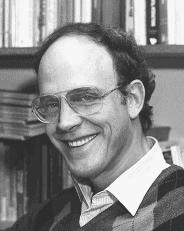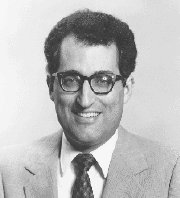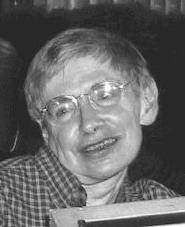Special Lecture Program
|
An event of the |
|
Tata Institute
of Fundamental Research (Mumbai, India) |
|
and the |
|
Clay Mathematical
Institute (Cambridge, USA)
|
Participation by invitation only
For the many science enthusiasts in Mumbai and neighbouring
cities, there will also be a
Public Lecture
Program. Please visit the link for details.
- Date: Wednesday January 10, 2001
- Time: 3:00 PM
- Venue: Homi Bhabha Auditorium,
Tata Institute of Fundamental Research,
Homi Bhabha Road, Mumbai 400 005
- Program:
| 3:00 - 3:50 PM |
David Gross: |
Towards a Theory of Everything |
| 3:50 - 4:40 PM |
Edward Witten: |
Quest for Unification |
| 4:40 - 5:10 PM |
Tea Break |
| 5:10 - 6:00 PM |
Stephen Hawking: |
The Universe in a Nutshell |
- This program is by invitation only. No one will be admitted
without a pass.
- Audience members are requested to be in their seats by 2:55
PM.
David Gross
Institute for Theoretical Physics,
University of California,
Santa Barbara, U.S.A.
Towards a Theory of Everything
I shall review the current state of String Theory, an ambitious
attempt to construct a unified theory of matter and gravity. I shall
discuss the reasons why we have been led to this theory, the marvelous
structures that it has revealed and speculate on its future prospects.
|
 |
|
About the speaker:
Professor David Gross is one of the chief architects of the fundamental
theory of the strong force. This theory provides the basis for
understanding the properties of strongly interacting particles and all
of nuclear physics. He is also one of the discoverers of the
"heterotic string theory", which has the potential to incorporate all
observed elementary particles and their interactions in a unified
framework. He is the Director of the Institute for Theoretical
Physics at Santa Barbara, and a recipient of the Oscar Klein Medal
and the Dirac Medal.
|
|
Edward
Witten
California Institute of Technology,
Pasadena, USA
and
Institute for Advanced Study,
Princeton, USA
Quest For Unification
The problem of quark confinement is the question of explaining
why we never see an isolated quark, given that protons and neutrons
are made of quarks. In recent years, this problem has been linked in
unexpected ways with the quantum mechanics of black holes.
|
 |
|
About the speaker:
Professor Edward Witten
is the torch-bearer of string theory. He has made
pioneering contributions to almost all the dominant themes in the
subject over the past two decades, including supersymmetry, string
compactifications and duality. In his quest to discover the principles
of string theory, he developed deep and beautiful connections between
quantum field theory, string theory and pure mathematics. He is a
recipient of the Fields Medal for mathematics and the Dirac Medal.
|
|
Stephen Hawking
Department of Applied Mathematics and Theoretical Physics,
Cambridge University, UK
The Universe in a Nutshell
Hamlet said, "I could be bounded in a nutshell and count myself King of
infinite space". But is the universe actually infinite? In this lecture
Professor Hawking explains the developments in cosmology that have
contributed to the way we view the universe today. From Hubble to Einstein
and Penrose to Feynman, Professor Hawking describes these scientists' ideas
and makes some predictions of his own about the fate of the universe and
how near we are to understanding it.
|
 |
|
About the speaker:
Professor Stephen Hawking is one of the pre-eminent physicists working on
quantum gravity and cosmology. His work bears upon fundamental
questions about the structure of spacetime and the origin and the
fate of our universe. His discovery of quantum radiation from black
holes established a profound connection between the geometry of
spacetime, quantum mechanics, and thermodynamics. He is currently
Lucasian Professor of Mathematics, a chair that was previously held by
Newton and Dirac.
|
|


